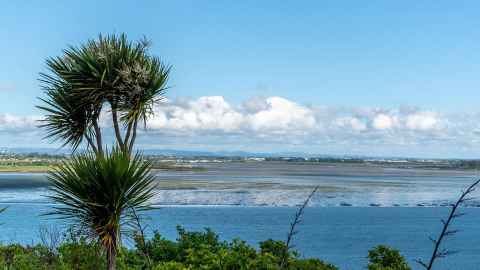From mental health to Māori body adornment: Marsden success for Arts
06 November 2019
How can we best use digital technology to help rather than harm youth mental wellbeing? What is the significance of body adornment for Māori? Why do Asian New Zealanders remain virtually absent from New Zealand screen culture?

These are some of the questions leading researchers at the University of Auckland’s Faculty of Arts will explore after receiving six grants worth nearly $3.5 million from Te Pūtea Rangahau a Marsden, the Marsden Fund.
Dean of Arts Professor Robert Greenberg is delighted that Arts has been so successful in this year’s round. “It’s a testament to the high quality and value of the submitted projects and the excellence of our researchers,” he says.
In Anthropology, medical anthropologist Associate Professor Susanna Trnka receives $842,000 to look at how young people actually use (or ignore), create or re-deploy digital resources to support mental wellbeing; focusing on everything from anti-anxiety apps and mental health chatbots to YouTube mental health vlogs and online forums combatting suicide and depression.
Associate Professors Sarina Pearson and Shuchi Kothari (Media and Communication) are awarded $842,000 to look into the absence of Asian New Zealanders from Kiwi screen culture, arguing that racial marginalisation is a consequence of institutional and industrial ideologies and screen production practices. They will produce the first history of Asian New Zealand screen production from 1980 to 2019.
It’s a testament to the high quality and value of the submitted projects and the excellence of our researchers.
Based at the James Henare Māori Research Centre, Dr Marama Muru-Lanning and Dr Keri Mills receive $660,000 for their investigation into three Aotearoa harbours: Kāwhia, Manukau and Whangārei. They will examine diverse local expressions of kaitiakitanga (guardianship, protection) and how mātauranga Māori and kaitiakitanga interact with local and central government ways of thinking about and treating these places.
Dr Ngarino Ellis in Art History is awarded $523,000 to explore the rich and rarely-researched world of Māori body adornment across four centuries; focusing on what specific messages it sent out about the social, economic and political status of the wearer. She will be looking at different types of adornment, the practice of making it and the people involved (makers, wearers and kaitiaki or caretakers) with a view to a major book.
In History, Dr Charlotte Bennett receives a $300,000 Fast-Start to gather children’s eyewitness accounts of the 1918-19 flu epidemic, hoping to understand how they experienced widespread illness and loss.
The epidemic killed some 50 million people globally and was especially lethal for those aged 20-40, meaning many children lost at least one, if not both parents. She will be looking at childhood accounts from Aotearoa, Ireland and Canada and drawing from newspapers, school magazines and memoirs.
And in Cultures, Languages and Linguistics, Dr Danping Wang is also awarded a Fast-Start ($300,000) to look at how learners, past and present, have felt about learning Mandarin Chinese, an ancient language that has only been taught in New Zealand relatively recently.
The project will particularly focus on integrating Māori ways of learning as an innovative framework for Chinese language teaching, as well as on harnessing learners’ perspectives to provide fresh insights into how people learn best.
Overall the University was awarded a total of 35 grants which will be distributed over three years. Te Pūtea Rangahau a Marsden is managed by the Royal Society Te Apārangi on behalf of the government.